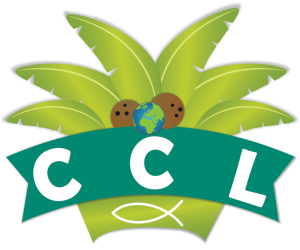
Down syndrome is a chromosomal disorder that affects millions of individuals worldwide. It is caused by an extra copy of chromosome 21, leading to developmental delays and cognitive impairments. While there is no guaranteed way to prevent Down syndrome, there are strategies and preventive measures that individuals can consider, particularly in the context of assisted reproductive technologies like in vitro fertilization (IVF).
What Is Down Syndrome?
Before delving into preventive measures, it’s crucial to understand what Down syndrome entails. Typically, humans have 23 pairs of chromosomes, including two sex chromosomes (XX for females and XY for males). However, in individuals with Down syndrome, there is an extra copy of chromosome 21, resulting in a total of 47 chromosomes instead of the usual 46. This extra genetic material can lead to various physical and intellectual disabilities.
Risk Factors for Down Syndrome
The primary risk factor for Down syndrome is advanced maternal age, particularly for women over 35. As women age, the chances of chromosomal abnormalities, including an extra chromosome 21, increase. However, it’s important to note that avoid Down syndrome can occur in pregnancies of women of any age.
Understanding IVF and Down Syndrome
Understanding IVF and Down Syndrome involves a nuanced exploration of the intersection between assisted reproductive technology and genetic disorders. In vitro fertilization (IVF), a prevalent method for aiding conception when natural means prove difficult, entails a meticulous process whereby eggs and sperm are united outside the body within a laboratory environment. Following this union, embryos are carefully cultivated before being transferred into the uterus. However, discussions surrounding IVF often extend beyond its procedural intricacies to include considerations of genetic outcomes. Down Syndrome, a chromosomal disorder characterized by intellectual disabilities and distinct physical features, is one such genetic concern that may be associated with pregnancies resulting from IVF. While the incidence of Down Syndrome in IVF-conceived pregnancies does not inherently differ from naturally conceived ones, the age of the woman undergoing IVF may influence the risk, as advanced maternal age is associated with an increased likelihood of chromosomal abnormalities.
While IVF offers hope to many struggling with infertility, it’s essential to understand its potential relationship with Down syndrome. Research has shown a slightly higher incidence of chromosomal abnormalities, including Down syndrome, in pregnancies conceived through IVF compared to natural conception. This increased risk is attributed to various factors, such as maternal age, the quality of embryos, and the techniques used during IVF procedures.
Preventive Measures and Strategies
- Genetic counseling plays a pivotal role in the journey of individuals or couples considering in vitro fertilization (IVF), offering valuable insights and guidance regarding potential genetic risks and available options. Before embarking on the complex process of IVF, it is essential to understand the genetic implications that may affect the health and well-being of future offspring. Genetic counseling provides a comprehensive assessment of the risk factors associated with chromosomal abnormalities, inherited disorders, and other genetic conditions. Through thorough evaluation, individuals or couples can gain a clearer understanding of their genetic profile and the potential impact on their future family.
- One of the key components of genetic counseling for IVF is discussing the option of preimplantation genetic testing (PGT). PGT involves screening embryos created through IVF for specific genetic abnormalities before they are implanted in the uterus. This screening process enables healthcare providers to identify embryos with chromosomal abnormalities or genetic mutations, allowing for informed decisions regarding embryo selection and implantation. By incorporating PGT into the IVF process, individuals or couples can significantly reduce the risk of passing on genetic disorders to their children, ultimately increasing the likelihood of a healthy pregnancy and successful birth.
- Preimplantation Genetic Testing (PGT): PGT is a technique used during IVF to screen embryos for chromosomal abnormalities before implantation. This can help identify embryos with an extra chromosome 21 (or other abnormalities) and increase the chances of transferring a chromosomally normal embryo, thereby reducing the risk of Down syndrome.
- Embryo Selection: During IVF, multiple embryos may be created. By selecting the healthiest and chromosomally normal embryos for transfer, the risk of chromosomal abnormalities, including Down syndrome, can be minimized.
- Healthy Lifestyle: While not directly related to IVF, maintaining a healthy lifestyle before and during pregnancy can positively impact fetal development. This includes regular exercise, a balanced diet, avoiding alcohol and tobacco, and managing preexisting health conditions.
- Early Prenatal Screening: For pregnancies conceived through IVF or naturally, early prenatal screening and diagnostic tests can provide information about the fetus’s health. These tests, such as ultrasound scans, blood tests, and amniocentesis, can detect chromosomal abnormalities, including Down syndrome, allowing parents to make informed decisions about their pregnancy and healthcare options.
IVF Success Rates and Down Syndrome
It’s important to note that IVF success/نجاح عمليات التلقيح الصناعي rates vary depending on several factors, including age, reproductive health, and the clinic’s expertise. While IVF can increase the chances of conception for individuals facing infertility challenges, it does not guarantee a successful pregnancy in every attempt. Factors such as the quality of embryos, implantation success, and maternal health play crucial roles in IVF outcomes.Maternal health is another vital aspect influencing IVF outcomes. Factors such as body mass index (BMI), lifestyle habits, and underlying medical conditions can impact the success of IVF treatment. Maintaining optimal maternal health before and during pregnancy is essential for maximizing the chances of a successful outcome.
In conclusion, while IVF offers hope to individuals struggling with infertility, it’s essential to recognize the multifaceted nature of success rates. Factors such as age, reproductive health, clinic expertise, embryo quality, implantation success, and maternal health collectively contribute to the variability in IVF outcomes. Understanding these factors can help individuals make informed decisions and manage expectations throughout the IVF process.
Conclusion
Down syndrome is a complex genetic condition that impacts individuals and families in various ways. While it’s not possible to completely prevent Down syndrome, understanding the risk factors and implementing preventive measures can be beneficial, especially for individuals undergoing IVF or considering assisted reproductive technologies.
Genetic counseling, preimplantation genetic testing, healthy lifestyle choices, and early prenatal screening are strategies that can help individuals make informed decisions about their reproductive health and reduce the risk of chromosomal abnormalities, including Down syndrome.
Ultimately, every individual and couple’s journey towards parenthood is unique, and seeking guidance from healthcare professionals, including fertility specialists and genetic counselors, can provide valuable insights and support in navigating these complexities.



















